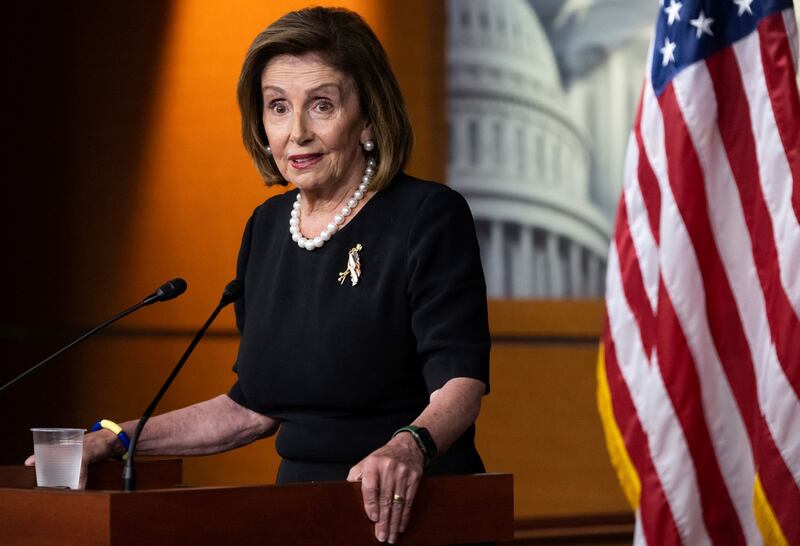Washington should avoid “playing with fire” on the issue of Taiwan, Chinese President Xi Jinping warned U.S. President Joe Biden Thursday, ahead of a possible trip by U.S. House Speaker Nancy Pelosi to the democratic island Beijing says is a runaway province.
Xi made the comments to Biden during a two-hour call — their fifth as heads of state — urging his counterpart to refrain from interfering in Beijing’s “national sovereignty and territorial integrity,” the official Xinhua news agency said in a report.
“Playing with fire will only get you burned. I hope the U.S. is clear on this,” the report quoted Xi as saying.
“The U.S. side should abide by the ‘one-China principle,’” he added, reiterating Beijing’s firm opposition to Taiwanese independence.
Thursday’s call came amid reports that Pelosi would visit Taiwan in early August. Neither the U.S. government nor Pelosi’s office has confirmed the news, but Biden recently indicated that the military “did not think it was a good idea right now” for the House speaker to visit Taiwan.
China has already responded strongly against the rumored trip, with a PLA spokesman threatening that should Pelosi insist on making the visit, “the Chinese military will never sit idly by, and will certainly take strong and resolute measures” to retaliate.
A statement from the U.S. 7th Fleet said that the aircraft carrier USS Ronald Reagan and its strike group re-entered the South China Sea after having left Singapore on Tuesday, and projections show the vessel is headed north, amid the Chinese warnings.
Responding to Xi’s comments on Thursday, Biden made clear that Washington “strongly opposes unilateral efforts to change the status quo or undermine peace and stability across the Taiwan Strait,” according to a White House press release.
While the U.S. does not have official relations with Taiwan and recognizes Beijing diplomatically, rather than Taipei, as part of the so-called “one-China policy,” Washington is obligated by law to provide the island with defense capabilities. Lawmakers have called on the Biden administration to take a stronger stance on Taiwan.

Other issues
In addition to the Taiwan issue, Chinese state media said that the two leaders exchanged “candid and in-depth” views on a wide-range of bilateral concerns, including economic policy, supply chains and energy security, as well as global affairs, such as the developing world, the coronavirus pandemic, climate change and the role of the United Nations.
Xinhua said Biden and Xi exchanged views on “the Ukraine crisis,” and that “Xi Jinping reiterated China's principled position” on the issue, without providing further detail.
Beijing has refrained from condemning Russia’s invasion of Ukraine and Biden had been expected to raise the idea of a price cap on Russian oil to punish Moscow over the conflict. During the two leaders’ previous call in March, Biden had warned of “consequences” if Beijing provided material support for Russia’s war, but the U.S. government has said there has been no indication that China had done so since.
The White House described Thursday’s call as part of the Biden administration’s “efforts to maintain and deepen lines of communication between the United States and the PRC and responsibly manage our differences and work together where our interests align.”
It said that following their discussion, the two presidents tasked their teams to follow up on the issues raised in the call, particularly those of climate change and health security.
Prior to the call, White House national security spokesman John Kirby described U.S. ties with China as “one of the most consequential bilateral relationships that we have, not just in that region, but around the world, because it touches so much."
In a report on Thursday, Reuters news agency cited a person briefed on planning for the call as saying that the Biden administration believes leader-to-leader talks are the best way to lower tensions over Taiwan.
The report noted that some analysts believe Xi also has an interest in avoiding escalation as he seeks an unprecedented third term in office at a congress of China's ruling Communist Party expected in the fall.
The U.S. executive branch has little control over congressional travel and Kirby told reporters that the Biden administration has been in touch with Pelosi's office to make sure she has "all the context" she needs to make decisions about her travel.
